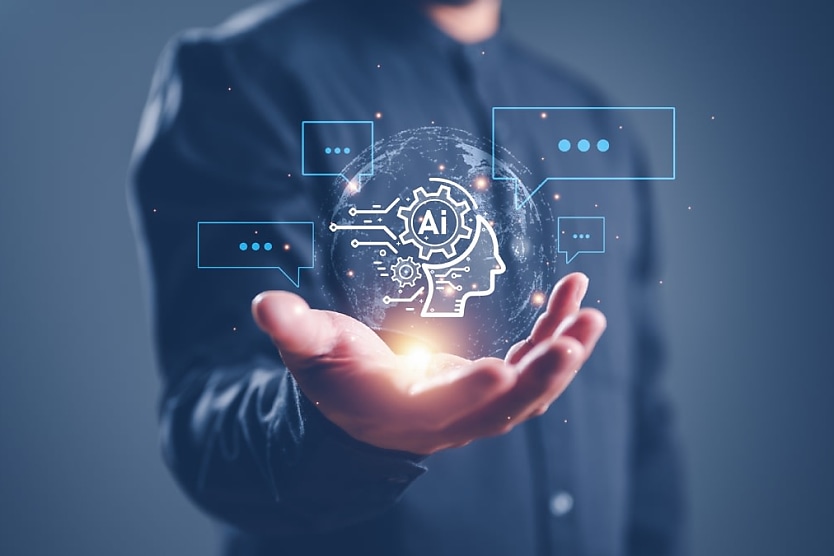AI Q&A: Important questions answered
SHARE THIS ARTICLE

AI is an exciting yet often intimidating thought. With many unaware of the capabilities and misconceptions running wild, gathering a better understanding of this tech is important.
Tony Anscombe, chief security evangelist at ESET, joined the HR Leader to discuss all things artificial intelligence (AI) and get some of the important questions answered.
HR Leader: “What do you see for the future of AI? Do you think that it will become widely accepted, or do you think that these fears will persist?”
Mr Anscombe: “I think it will become to the point where we won’t know where we’re using it and where we’re not, because it’ll just be integrated into part of our everyday life.”
“So, if you contacted a vendor today and you had certain questions, or you’re buying a product that is new because that product is providing new services, or you’re putting some sort of smart device into your house. How do you know there’s no AI in it? And how do you know it wasn’t developed using AI?”
“It depends, really, what the deployment of AI is in that case, of whether you actually see it. So, I think it will become normalised.”
“Many organisations in the cybersecurity field have been using it for a long time. There are certain things when we drive our cars for normal safety. If you’ve got collision damage avoidance systems on your car, that’s likely to be using a lot of data behind it about stopping you going into the back of the car in front.”
“We’re already using lots of it, but what we don’t see is the controversial ends of it at this moment in time. And I think that’s what you’re starting to see is where potentially it could change and become a little bit more open and not hidden from us.”
“So, I think it does need regulation. It does need people to consider how it gets used in the same way … Whoever puts the regulation in needs to think really long and hard about what that regulation looks like to make sure that it doesn’t stifle that innovation.”
HR Leader: “Are data leaks a real challenge for companies implementing AI?”
Mr Anscombe: “It depends on what they’re using it for. The security around it should be the same as if I’m a company and I collect customer data and I’ve got this mass customer database, which, of course, a lot of companies we deal with daily have.”
“Data breaches, unfortunately, are a common reality in this day and age. If AI is sitting there and it’s being the chatbot, that’s your customer service representative, and it’s trying to answer your questions, it’s only accessing the data in the same way that any other system they put there is. So, somebody needs to make sure it’s secure in the right way.”
“One question I’m often getting asked is, have we seen any AI-created attacks within the cyber security fear? And the answer is yes and no. Have we seen an AI-sophisticated piece of malware being created that’s never been seen before? The answer to that is we’re not seeing that yet. Have we seen academics or proof of concepts that you could use AI to do this? Yes.”
“I mean, that’s been widely documented. But what we are seeing is an improvement in phishing emails. And everybody needs to understand that both in the workplace and as a consumer, if suddenly the full stops are all in the right place, the capitalisation is good and the language looks normal, then suddenly spotting a phishing email might become a bit tougher.”
“We’ve been using machine learning, which is a subset of AI, for the last 15 years. So, all of our customers have been benefiting from AI for 15 years. But the problem was, 15 years ago, can you imagine us turning around and saying we’re using part of artificial intelligence to protect your organisation and your digital assets? Everybody would have got freaked out, and everybody would have gone, ‘I have no clue what you’re on about’. How does that work? And stayed away from you.”
“That’s why I think the security industry didn’t overly talk about it because we’re using it and it was working, and maybe getting into machine learning and data and stuff like that. Now we’re a bit more mature as a society, we understand it more fully. Back then, I think it would have been a bit more frightening.”
The transcript of this podcast episode was slightly edited for publishing purposes. To listen to the full conversation with Tony Anscombe, click below:
Jack Campbell
Jack is the editor at HR Leader.

